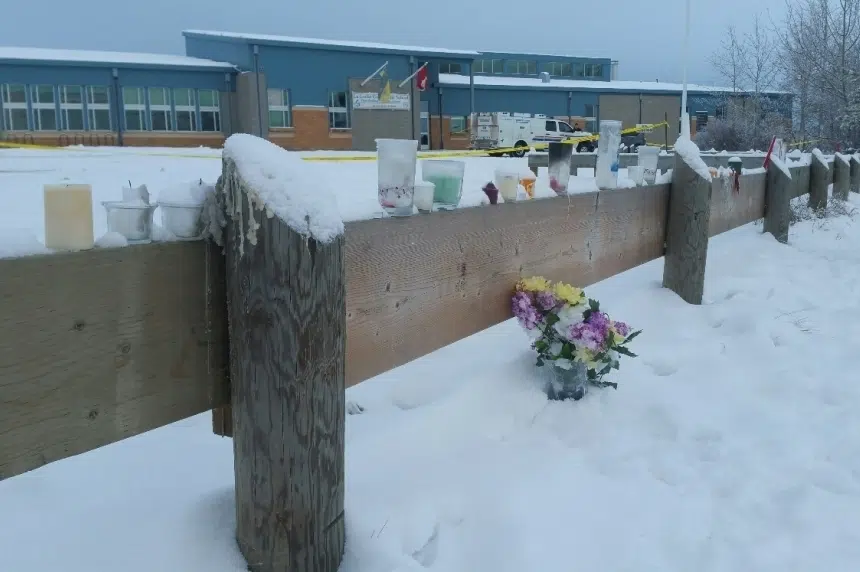A Toronto woman is speaking out in support of the small Northern Saskatchewan community where her brother died in a mass shooting.
Caitlin Wood’s brother Adam was among four people killed by a 17-year-old gunman in La Loche on Jan. 22, 2016.
“(Adam) was incredible. Adventurous, loved challenge. He was always reading and expanding and learning,” Wood told Saskatchewan Afternoon host David Kirton.
Wood and a few other members of Adam’s family recently attended a memorial in La Loche marking one year since the tragedy.
“We weren’t pointed out right away or anything, we were able to just be in attendance of the event,” she said.
Wood said she was touched as people approached her after the ceremony.
“People just came up, and community members were coming up and just greeting us and exchanging words of hope and condolences and shared grief,” she said.
Having avoided media since the shooting, Wood said she now feels a responsibility to add her voice to calls for more supports for La Loche – where some community leaders have said they feel forgotten despite politicians’ promises of help.
“I think too often we have this idea that, ‘oh well, it’s too far’ and ‘it’s the North’ and I just think that’s absolutely unacceptable,” Wood said.
Having visited the community, she said it’s hard not to think her brother’s death could have been avoided.
“The lack of social workers, the lack of opportunities for youth to become engaged. Those types of things may have contributed to the school shooting,” she said.
Wood is calling on people to contact their elected representatives to demand better.
She said she often finds herself reflecting on times when her brother bemoaned the lack of government leaders with knowledge of the North.
Wood admits she wrote the comments off at the time, given Adam’s passion for the region — but now, she finds herself asking the same questions.
“How many of these politicians have had experiences living up there?” she said.
“The people that are making policies and the people that are making judgements and laws and decisions about where funding should go – how many of them really, truly know what life is like in the northern areas?”











